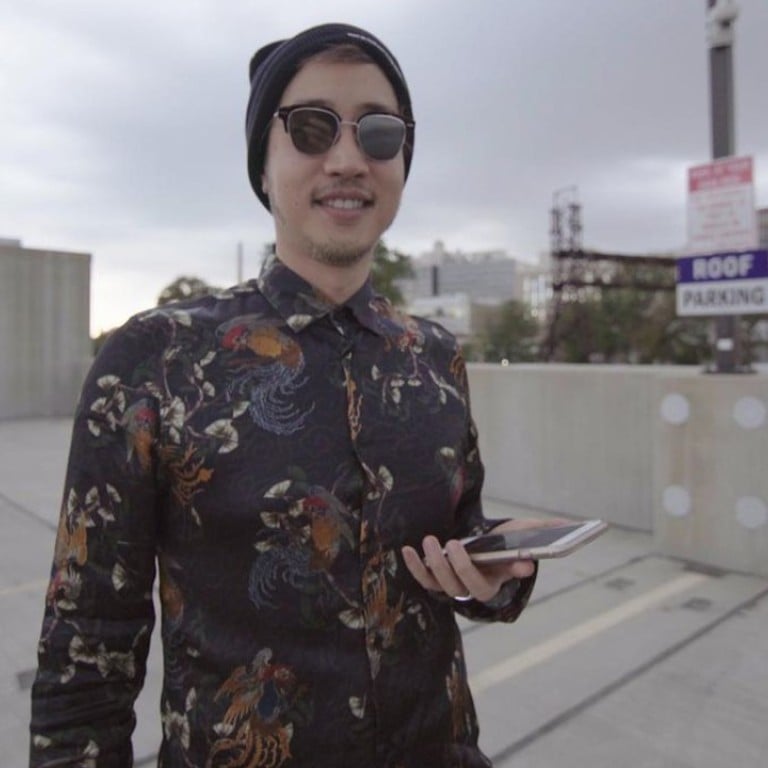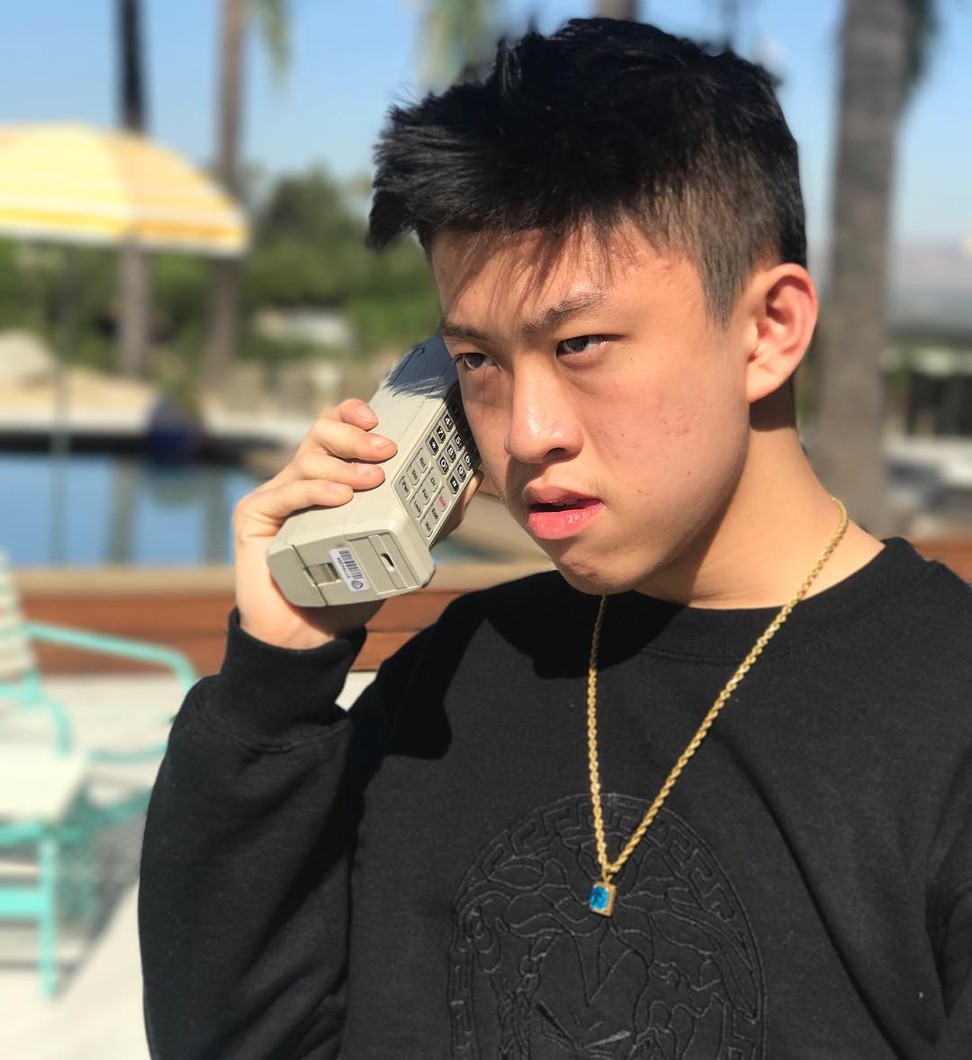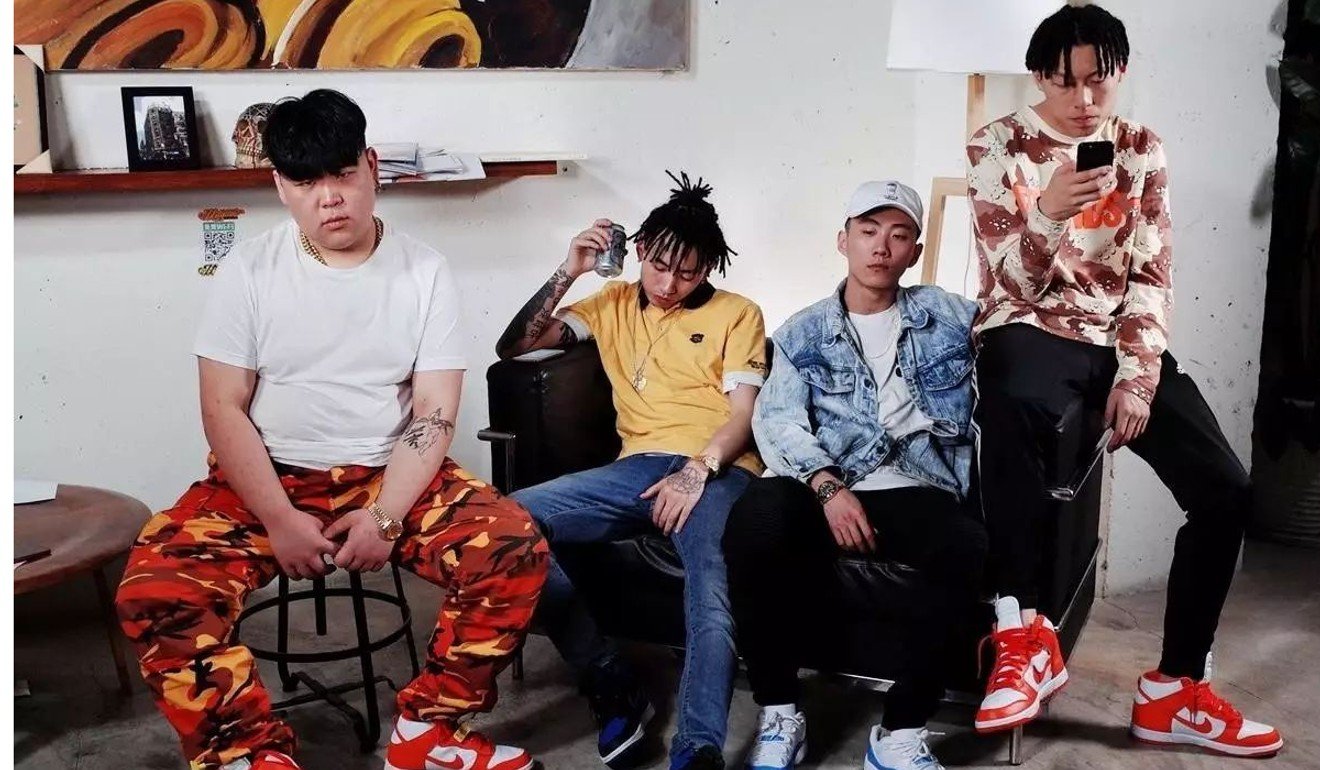
Rich Chigga: the talent spotter who made Indonesian rapper a big name and gave Chinese kids some new role models
Sean Miyashiro’s mission to show the world Asians can rap began at a Bronx car park two years ago; since then he’s founded a company, 88rising, and signed up some of the hottest acts in Indonesia, South Korea and China
Two years ago, Miyashiro had to escape from his girlfriend’s thin-walled dorm room at the nearby Albert Einstein College of Medicine.
Chengdu rap crew Higher Brothers show off their illicit beats and rhymes
He liked to stay up late playing loud music – especially from rappers in Indonesia and South Korea, whom he came across on the internet, but other medical students complained. Miyashiro took refuge on the top level of a nearby garage, where he could park his car and play music at hubcap-rattling volume. He could get a Wi-fi signal, allowing him to commune online with the rappers, as well as food at a nearby McDonald’s and a local deli. There was no toilet up on the garage, but it wasn’t a problem.
“To be honest, I would even go to the bathroom here,” Miyashiro said on a recent visit to the parking garage. “I mean, it’s just too far to go back down there. I had everything here. My car was my office.”
Today, Miyashiro has a more enviable set-up. His company, 88rising Inc, has offices in Manhattan, Los Angeles and Shanghai. The founder and his 24 employees oversee a roster of artists, the best-known of which is Brian Imanuel, a baby-faced 18-year-old Indonesian who rhymes under the name Rich Chigga, and who performed at a nightclub in Hong Kong’s Central district in June this year.
Chinese kids now finally have someone to look up to other than TV stars. 88rising artists are their great role models
In the video of his 2016 hit, Dat $tick, Imanuel deftly parodies American rap culture and Asian nerd stereotypes, talking tough and dancing menacingly in slow motion while wearing a pink polo shirt and a fanny pack. The video has been viewed more than 77 million times on YouTube.
Part of Imanuel’s appeal also comes from the story of how he learned English by watching Rubik’s Cube instructional videos, eventually transforming himself into a new kind of global hip-hop star, with some help from Miyashiro and 88rising. Miyashiro believes the success of such 88rising artists proves that Asian pop is more than just the slickly produced Korean kind.
“K-pop is a completely manufactured thing, right?” he said. “It’s like, dude, you’ve got to learn your dance moves. Then you spent a zillion dollars presenting it to the world. We’re the complete opposite to the core. We come from a total punk-rock vibe.”
Banned in China: why some of music’s top stars are blacklisted by Beijing
A personable 36-year-old with a wispy beard, Miyashiro calls other men “bro” and “dude” and laughs loudly at his own jokes. He is in talks with several media companies hoping to create television shows about 88rising’s acts, and he recently organised his company’s current Asian tour, its first, which includes stops in Thailand, Singapore, the Philippines, and China. Imanuel is the headliner.
Additional acts include the Higher Brothers, four bumptious rappers from Chengdu in China who appeared last month at Hong Kong’s Clockenflap festival; and George Miller, better known as Joji, a crooner from Japan whose recent single, Will He, topped Spotify’s viral chart globally in October.

Lingo Lin, director of marketing and artist relationships at Alibaba Group Holding Ltd, China’s e-commerce giant and the owner of the South China Morning Post, believes young listeners in China are as fascinated with how 88rising turns seemingly ordinary people into stars as they are with its music. “Chinese kids now finally have someone to look up to other than TV stars,” she said. “88rising artists are their great role models. You can come from nowhere and still make an impact.”
Miyashiro grew up in San Jose, California, the son of a mechanical engineer from Japan, who had been a jazz DJ in college, and a stay-at-home mother from South Korea, who favoured Michael Jackson and the Beach Boys.
K-pop is a completely manufactured thing, right? It’s like, dude, you’ve got to learn your dance moves
He went to San Jose State University without getting a degree; Miyashiro was more interested in livening up the sleepy commuter school’s campus. He put on punk and hip-hop shows and organised events for black fraternities. “I never dropped out per se,” he said. “I just never went back, because I started doing my own things.”
Miyashiro believed he had seen the next musical wave: Asian hip-hop. He was pretty sure he could see it looming online as kids in China and other places embraced rap and gave it their own cultural twist. From the top of the parking garage, Miyashiro started a management firm which would morph into 88rising. He made contact with budding overseas artists that he and his employees found on the internet. The first was Keith Ape, the South Korean rapper behind the 2015 hit It My G Ma, whose real name is Lee Dongheon. The New York Times called Lee “a clear inheritor of Southern rap rowdiness that requires no translation”.

Soon after, Miyashiro latched onto Imanuel. The rapper was home-schooled and started messing around with Rubik’s Cubes at age 10, sometimes taking part in competitions. He also began watching online tutorials in English, a language he didn’t speak, because there weren’t any online tutorials in Indonesian.
“One day I was thinking about something,” Imanuel said. “You know, when you have the inner voice in your head? I realised it was English, and I was like, ‘Damn, this is cool. I want to keep doing this. I’m going to learn English.’” He practised talking on Skype to a kid in Boston named Noah, who taught him about American culture, slang and hip-hop.
Imanuel was already posting weird comedic stuff on Twitter when one of Miyashiro’s colleagues spotted him. Miyashiro was impressed. “I was like, ‘Damn, this guy’s insane’,” he recalled. In March 2016, 88rising released Dat $tick with a fanny-pack-wearing Imanuel grimacing at his enemies and warning what would happen if they tested him.
A few days after the video’s debut, 88rising followed it up with another much viewed video, in which such noted black rappers as the Wu-Tang Clan’s Ghostface, Desiinger and 21 Savage praised Imanuel’s fanny pack and his flow. “That is dope,” Ghostface said on the video. “It’s different. It ain’t the same s***. It’s just him. I’ll get on that track. You know him?”
You can year Miyashiro on the video chortling with delight. “Yeah, I manage him,” he said.
“Tell him I said, much love,” the Wu-Tang elder said earnestly.
Imanuel, who had never visited the US, watched the video with his parents in Jakarta. A few months later, 88rising released a Dat $tick remix with Ghostface. To date, the remix has notched up 11 million views.

